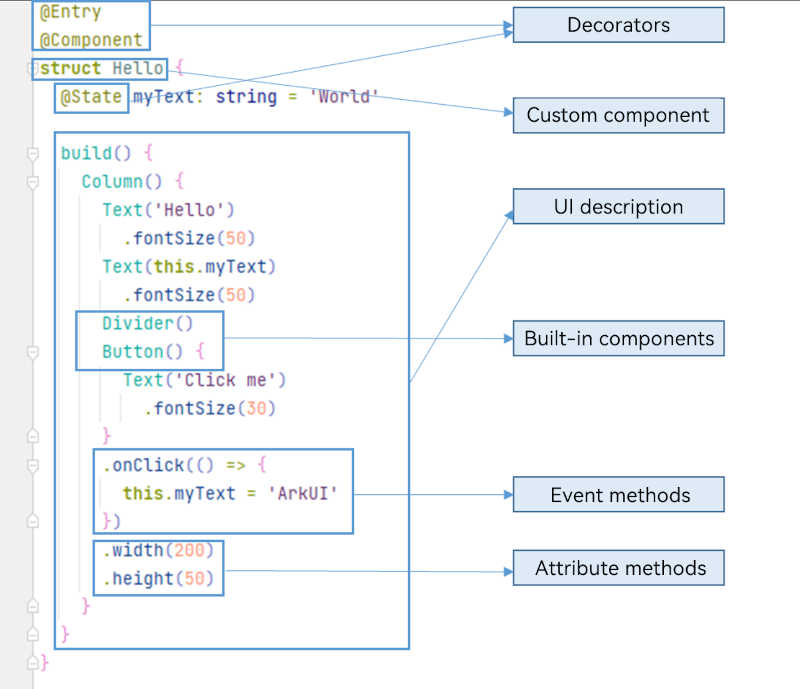| Huawei Intends To Challenge iOS and Android |
| Written by Mike James |
| Wednesday, 24 April 2024 |
|
Huawei has just changed its mind and decided to push its HarmonyOS to the rest of the world. A challenger to iOS and Android would be nice, but it is possible? Huawei has problems that aren't technical but political. Back in 2019 it was forced to launch its own Phone OS after US sanctions blocked it from accessing Android - despite it being open source. The result was Harmony OS which quickly developed into a jungle of different versions. Even so, we thought it might have a chance to disrupt the current situation, a prospect soon dispelled as Huawei stated that it had no intention of creating phones for use outside of China based on Harmony OS. Now this has changed.
Chairman Eric Xu told attendees at its 21st Analyst Summit in Shenzhen that it was ready to push Harmony OS to the rest of the world. Not only this, but the latest version of Harmony OS, Harmony Next, was not going to have any Android compatibility making it necessary to port the 5000 most used apps to the new OS. These apps account for 99% of Chinese users' time and when and if the conversion is completed and proven good then Harmony OS is certainly a viable alternative - in China. To gain acceptance elsewhere is going to take some cooperation from developers worldwide and this is what Huawei expects to happen. This is all the more important because recently Huawei launched a phone, the Mate 60, that has become the top-selling device in China, outstripping both the iPhone and Android. Notice, however, that these devices are compatible with Android apps, even if you have to side load anything not in the Huawei app store. So Harmony Next really is a new start. So, what does working with Harmony Next OS look like. This is not particularly easy to answer as the OS is still in developer preview and won't be released until the end of the year. But there somethings to say that gives you an overall feel for it. It is programmed in Java, like Android used to be, and not Kotlin. It also has its own IDE, DevECO Studio, based on IntelliJ. This could be good news as the bloated and poorly-designed Android Studio is something some Android programmers would be glad to see the back of. You also have to sign up to become a Huawei developer. It has two tiers - individual and corporate - and there seems to be no charge associated with it, but you do have to provide proof of identity. This brings us to the trust issue. Huawei is still under sanction from the US and other countries treat it as untrustworthy. Does this affect your decision to develop apps on the platform? As for actually programming apps, the UI is based on ArkUI which started out as an imperative framework to be used with Java. The latest is a declarative framework that makes use of ArkTS, a TypeScript /JavaScript-like language. It looks as if, by the time we reach Harmony Next, the development best practices might have moved on to something more like iOS and MAD on Android.
One thing that is fairly obvious is that porting existing apps to Harmony isn't going to be automatic and it looks to me as if starting over is a better option. This, of course raises the question of why they dropped the Android compatibility? I have to admit that I can't see a good reason for it, unless it is some sort of long-term planning to go it completely alone. Finally, you have to notice that there's a wide gap between the first use of Harmony, restricted to the Chinese market, to today's stance of wanting it to be a world OS? Is it too late or is timing not important in this context? And I think my mild enthusiasm for the project has more to do with my dissatisfaction with the current mess that Android is and the walled garden that iOS is, than the merits of Harmony itself.
More InformationHuawei HarmonyOS Developer Push Related ArticlesHuawei HarmonyOS Developer Push Huawei's Ark Compiler Is A Publicity Stunt? Huawei's Confused OS - ArkOS, LiteOS, HongMeng, Harmony... What Is Huawei's New Operating System Huawei Blocked From Android - The Ascendance Of A New OS? To be informed about new articles on I Programmer, sign up for our weekly newsletter, subscribe to the RSS feed and follow us on Twitter, Facebook or Linkedin.
Comments
or email your comment to: comments@i-programmer.info
|
| Last Updated ( Wednesday, 24 April 2024 ) |




